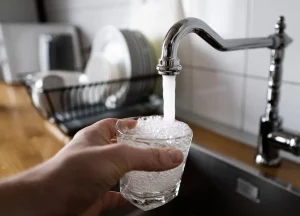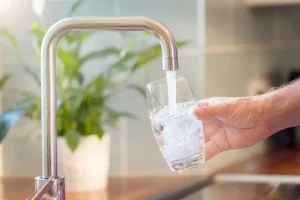Carbonated water is bubbly, refreshing and crispy and has been a popular beverage for millions of Americans. It’s also a multi-billion dollar industry. It’s not surprising, since carbonated water is a satisfying sensory experience. The bubbling sound when you open the cap. After a sip, or a gulp, you feel tingling in your mouth.
Plain water provides excellent hydration. Many people don’t like the taste of plain water and won’t drink it. Although carbonation can make the water more flavorful and enjoyable, is it bad for you? Could it replace your regular water intake or are you better off with carbonated water?
There are many health benefits to carbonated water. However, there are also potential side effects. This article provides alternatives to carbonated water if you are concerned about potential side effects. It is important to understand what carbonated water really is before we get into the details.
What is carbonated water?
Carbonated water is water that has been infused with carbon dioxide gas (CO2) gas. There are many types of carbonated water: club soda, soda water, sparkling mineral water and tonic water. The water is carbonated, which makes it taste similar to soft drinks but has far fewer calories.
The carbon is pressured and the water’s temperature is lowered to make it “sparkle”. These properties combine to cause carbon to disintegrate in water, creating carbonic acids. The “fizzy” effect occurs when the temperature or pressure is increased.
The water is carbonated either naturally or artificially. Naturally carbonated water is Perrier, San Pellegrino and other water from mineral springs. This happens when volcanic gases are dissolved in springs or natural wells. Naturally occurring carbonated water is often rich in minerals like calcium and sodium.
The CO2 gas is used to artificially carbonate water. It is injected under high pressure into the water. Carbonated beverages, except for seltzer water may contain minerals or have additional additives such as sodium and flavoring agents to enhance their taste.
You may be curious about the health benefits of drinking fizzy water, regardless of what type you prefer. This article will help you decide if you should drink or skip a bottle of bubbly next time you feel the need.
Benefits of Carbonated Water
Although sparkling water, club soda and seltzers may have different tastes and minerals, carbonated beverages offer similar nutritional profiles as well as health benefits. Drinking carbonated water has the potential to improve digestion, weight loss, and hydration. It is far healthier than soft drinks or other sweetened beverages. Let’s dive deeper into these benefits.
Sparkling water may improve digestion in some people.
It can be uncomfortable to feel bloated or uneasy. However, sparkling water can help. A glass of carbonated water may help to reduce discomfort from indigestion.
Excess stomach acid can cause indigestion. It can lead to nausea, vomiting, pain, bloating, constipation and other unpleasant symptoms. Although it is not known how carbonated water does this (maybe the bubbles), it may be a helpful treatment option.
Carbonated water is better than soda, juice, or other sugar-sweetened drinks.
People love carbonated beverages but are worried about their high sugar content. Excess sugar can not only be bad for your teeth, especially when added to carbonated drinks, but it can also cause unwanted weight gain.
Another option is artificially sweetened beverages. However, many people are choosing to avoid artificial sweeteners. Carbonated water is a great alternative. As long as it doesn’t contain sweeteners or additional sugars, which you can check via the nutrition facts label,
Carbonated water is often seen as a healthier option to soda, juice, and sports drinks such as Gatorade. It’s refreshing and can be used as a base for many different tastes, such as adding fresh citrus or other fruit slices.
Sparkling water could help with weight loss
Hydration is key to losing weight. Sparkling water is a healthier choice than diet sodas which contain sugar and do not provide enough hydration. Carbonated water can also prolong the life of food, increasing hunger and decreasing overeating.
You may feel constantly hungry if you don’t get enough water. Your body doesn’t know the difference between hunger and thirst. You may feel hungry all the time, which can make it difficult to lose weight.
Carbonated water may help with weight loss. However, you should be cautious about what type of carbonated water that you consume. Tonic water, for example, has about 15g of sugar per cup, which is one-third the amount of regular soda. Tonic water is not recommended for people who are trying to lose weight. Instead, opt for sparkling water or club soda with no added sugar.
Carbonated water can be as hydrating as regular tap water.
Dehydration can lead to fatigue, dry mouth, headaches, poor performance, and other problems. Carbonated water is just as hydrating and refreshing as regular water. Sparkling water is a great option if you are struggling to get your daily water intake.











